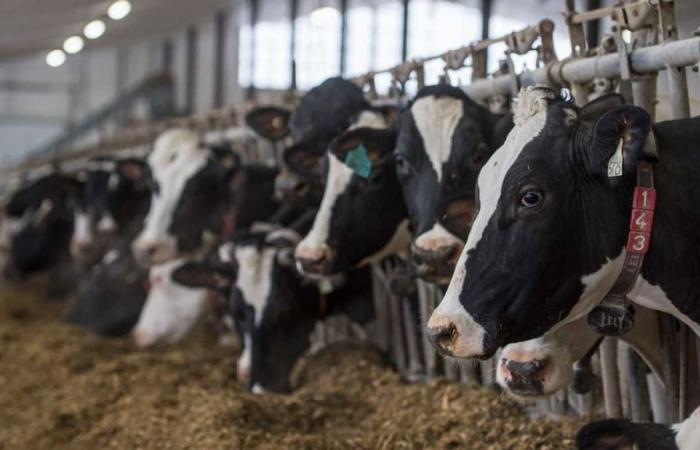Denmark will become the first country in the world to tax the flatulence of cows and pigs, a highly polluting source of methane, in a bid to reduce its greenhouse gas (GHG) emissions.
• Read also: Don’t throw your old fridge to the side of the road: there is a free solution that avoids tons of GHGs
• Read also: This is what 4°C warming will look like in Montreal
From 2030, livestock farmers will have to pay 672 Danish crowns (about 88 Canadian dollars) annually for each cow and pig to offset the methane emissions these animals emit through their flatulence and manure. Thanks to a tax deduction, farmers will ultimately pay only 120 (about 24 Canadian dollars) of the 672 Danish crowns.
The agreement reached on Monday between the Danish government, farmers, unions and industry aims to enable the country to reduce its GHG emissions by 70% by 2030 compared to the 1990 level. The country is aiming for carbon neutrality. by 2045.
“Tax reform is therefore the most important contribution to Denmark’s climate goals for 2030,” Danish Tax Minister Jeppe Bruus said in a statement.
• Read also: Scientists have invented chocolate that is better for your health (and for the planet)
The annual tax will increase between 2030 and 2035, going from 120 Danish crowns to 300 Danish crowns (approximately 59 Canadian dollars) per tonne of CO2 equivalent after the tax deduction.
As each animal emits around 5.6 tonnes of methane each year, we are talking about a tax of 1,680 Danish crowns (330 Canadian dollars) per head from 2035.
In the first two years, proceeds from the tax will be used to support Denmark’s green transition by investing in clean energy to ultimately eliminate fossil fuels.
Most emitting sector
It is worth noting that livestock is Denmark’s largest emitting sector, with the country being a major exporter of dairy and pork. The most recent official data counts 1.43 million cattle and nearly 11,500 pigs.
According to the United Nations, animal agriculture accounts for 32% of global emissions of methane, a powerful greenhouse gas that warms the planet up to 80 times more than carbon dioxide (CO2).
New Zealand announced a similar plan in 2022, but ultimately abandoned the project just under two years later.
— With information from CNN






